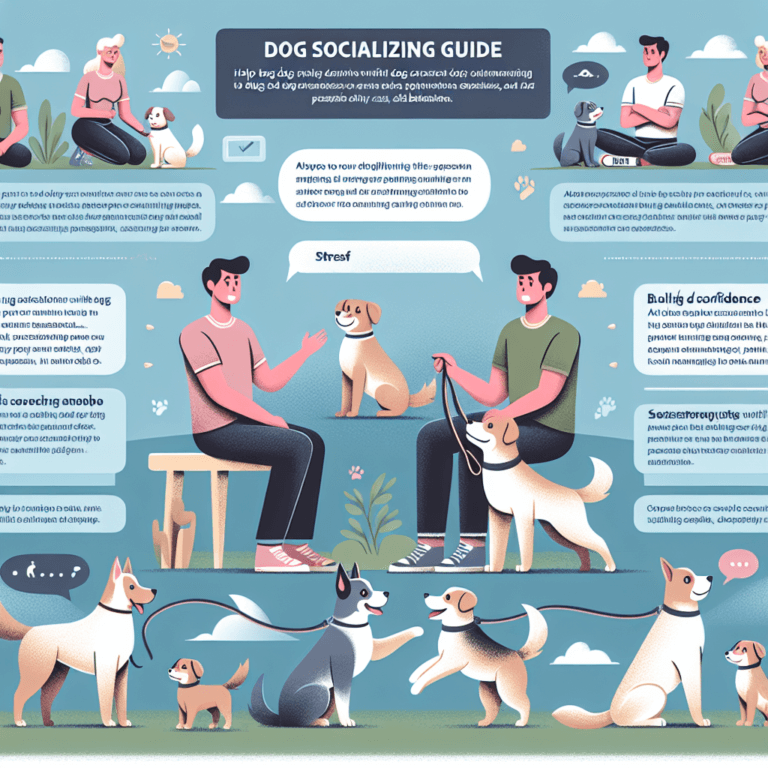So, you’ve got a furry friend who’s a bit shy around other dogs, huh? Don’t worry, you’re not alone. Many dog owners find themselves in a similar situation, wondering how to help their pup navigate the world of canine companionship. Well, fear not because in this article, we will walk you through the steps to successfully socialize your dog with other dogs. From understanding your dog’s body language to introducing them to new furry pals, we’ve got you covered. Get ready to watch your four-legged buddy embark on a fun-filled social adventure!
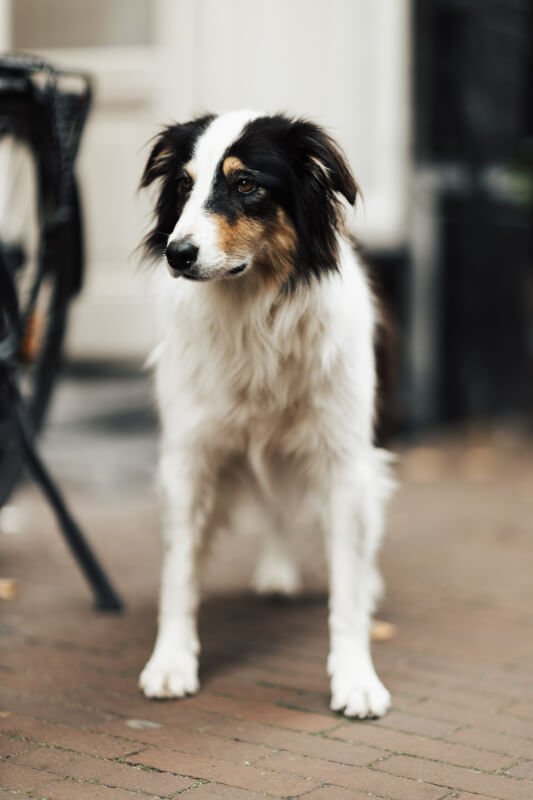
Understanding the Importance of Socializing Your Dog
Owning a dog comes with a lot of responsibilities, and one of the most important ones is socializing your furry friend. Socialization is crucial for dogs as it helps them develop appropriate behavior and communication skills, allowing them to live harmoniously with other animals and humans. By exposing your dog to different experiences, people, and animals, you are creating a well-rounded and confident canine companion. In this article, we will explore the benefits of socializing your dog and the risks of not doing so. We will also delve into when and how to start socializing your dog, as well as address common challenges and concerns. So, let’s dive right in!
Ready for Cat Trivia?
Test your knowledge about cats!

The benefits of socializing your dog
Socializing your dog offers numerous advantages that contribute to their overall well-being. Firstly, it helps build their confidence and reduces the likelihood of fear or anxiety towards new situations. A well-socialized dog is more likely to handle various environments, objects, and noises with ease, making them less likely to develop behavioral issues such as aggression or destructive behavior.
Secondly, socialization enables your dog to develop appropriate social skills. Through interactions with other dogs and people, they learn how to communicate effectively, read body language, and understand social cues. This is particularly important for puppies, as it sets the foundation for their future interactions and helps them grow into well-mannered and happy adult dogs.
Additionally, socialization provides mental stimulation for your furry friend. Exploring new places, meeting new people, and interacting with other dogs engages their senses and keeps their minds active. Dogs that are properly socialized are often more adaptable and able to cope with different environments, making them great travel companions and comfortable in various social settings.
Lastly, socialization can enhance the bond between you and your dog. By actively participating in their socialization journey, you are establishing trust, building a stronger connection, and reinforcing your role as their pack leader. It is a joint adventure that can be fun, rewarding, and enriching for both you and your furry companion.
The risks of not socializing your dog
On the other hand, failing to socialize your dog can have negative consequences on their behavior and overall quality of life. A dog that is not properly socialized may become fearful, anxious, or exhibit aggressive behavior towards other dogs, animals, or humans. This can lead to problems when taking them for walks, visiting the vet, or interacting with guests in your home.
Without socialization, dogs may struggle to adapt to new environments, causing unnecessary stress and anxiety. They may become excessively shy or even unable to cope with everyday situations such as encountering traffic noise, crowded areas, or other common occurrences in human environments. It is crucial to understand that socialization is not a luxury but a necessity for the well-being of your furry friend.
When to Start Socializing Your Dog
Socialization should ideally begin as early as possible in your dog’s life. The critical socialization period for puppies occurs between 3 and 14 weeks of age, when they are most receptive to new experiences and learning. This is the time when their brains are rapidly developing, and they are forming lasting impressions of the world around them. Exposing them to various stimuli during this period sets the stage for a confident and well-adjusted adult dog.
However, it is never too late to start socializing adult dogs. Even though they may have missed the critical period, dogs can still learn and adapt throughout their lives. Patience, consistency, and positive reinforcement are key when working with adult dogs, as they may have more ingrained behaviors or fears to overcome. With the right approach, adult dogs can also benefit greatly from socialization, and it can help improve any existing behavior issues they may have.
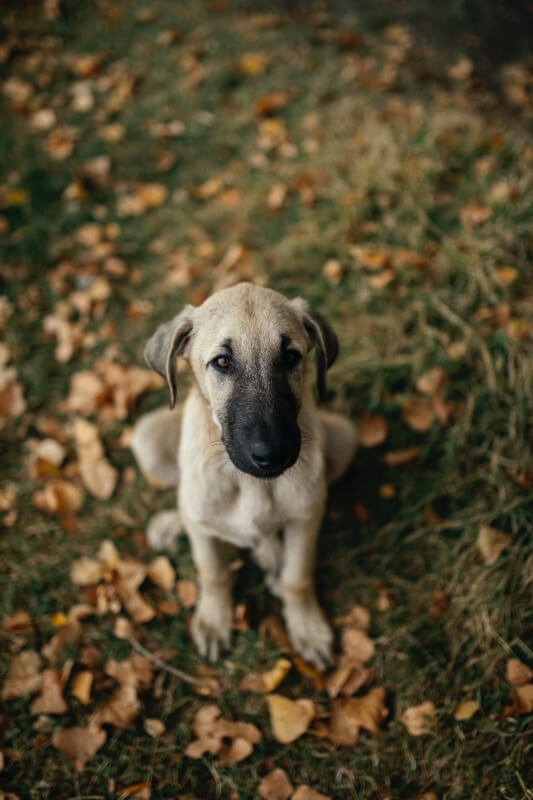
Preparing for Socialization
Before embarking on the socialization journey with your dog, it is important to ensure they are in good health and up to date on vaccinations. Vaccinations protect your dog from common diseases they may encounter during socialization, such as parvovirus or distemper. Consult your veterinarian to ensure your furry friend is fully vaccinated and ready for their adventures.
Additionally, it is crucial to check for any signs of illness or injury before starting socialization. If your dog is not feeling well or has an injury, they may not be in the right state of mind to engage in socialization activities. Take the necessary time to allow your dog to recover fully before exposing them to new experiences.
Gathering necessary supplies is also essential for successful outings. Bring along items such as treats, water, poop bags, and walking accessories like a leash and collar. These supplies help ensure your dog’s comfort and safety, making the socialization experience more enjoyable for both of you.
When choosing socialization locations, it is important to consider the appropriateness for your dog’s needs and temperament. Start with quiet, controlled environments, and gradually increase the level of stimuli as your dog becomes more confident. Avoid overwhelming them with crowded places or high-energy environments too soon, as this can lead to fear or reactivity. Remember, it’s about setting your dog up for success and gradually exposing them to new experiences.
Basic Socialization Techniques
There are several techniques and approaches you can use to socialize your dog effectively. These techniques focus on positive reinforcement, gradual exposure, encouraging appropriate behavior, and being mindful of monitoring and intervening when necessary.
Positive reinforcement training involves rewarding your dog with treats, praise, or play when they exhibit desirable behaviors. This technique helps reinforce positive associations with socialization experiences, making them more likely to repeat the desired behavior. Rewarding your furry friend for calm and friendly interactions with other dogs or humans helps promote positive socialization.
Gradual exposure to other dogs is an important aspect of socialization. Start by introducing your dog to well-behaved and friendly dogs in controlled environments, such as a quiet park or a friend’s backyard. Allow them to interact while closely monitoring their behavior. Gradually increase the complexity of the interactions as your dog becomes more comfortable, always ensuring their safety and well-being.
Encouraging appropriate behavior is key during socialization. Teach your dog basic commands such as “sit,” “stay,” and “leave it” to help them navigate social situations. Rewarding them for displaying appropriate behavior, such as sitting politely when meeting new people or dogs, reinforces good manners and helps prevent unwanted behavior.
Monitoring and intervening when necessary is crucial to ensure a positive and safe socialization experience. Pay close attention to your dog’s body language and behavior during interactions. If you notice signs of fear, aggression, or discomfort, step in and redirect their attention or remove them from the situation. Your dog’s well-being should always be the top priority, and it’s important to intervene when needed to prevent any negative experiences.
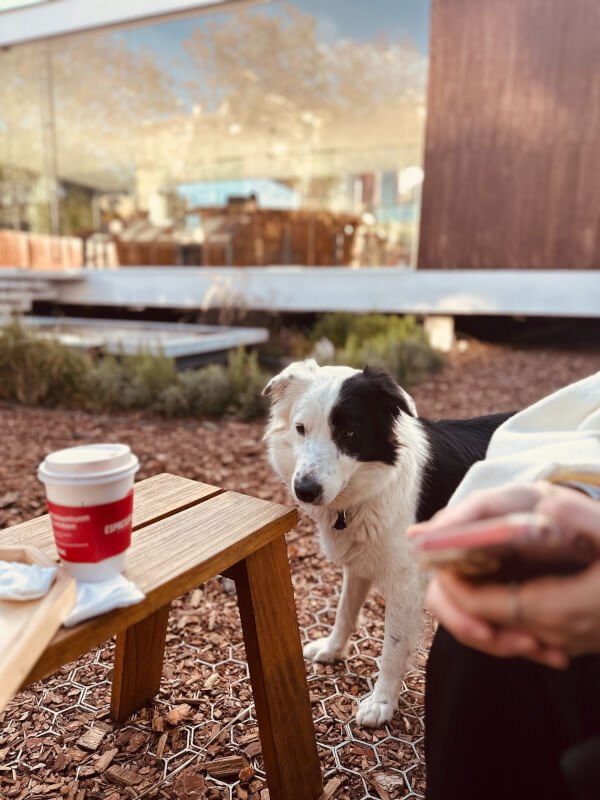
Socializing Your Dog at Home
Socialization doesn’t just happen outside of your home – it is equally important to socialize your dog within familiar surroundings. Organizing playdates with other dogs can be a great way to introduce socialization in a controlled environment. Invite friends or neighbors who have friendly and well-behaved dogs to your home or meet up at a local park. Allow your dog to interact and play under close supervision, rewarding positive interactions and intervening if needed.
Exposing your dog to different people and environments is also crucial. Invite friends, family, or neighbors of different ages and appearances to visit your home, allowing your dog to become comfortable and relaxed with different individuals. Take your dog on short outings to different locations such as parks, cafes, or pet-friendly shops to help them become familiar with diverse environments and situations.
Using food and treats as positive associations is an effective technique for socializing your dog at home. Whenever guests arrive or you encounter new environments, offer your dog treats or their favorite toys. This creates positive associations with new experiences, reducing anxiety and promoting a calm and relaxed state of mind. Gradually decrease the frequency of treats as your dog becomes more comfortable, relying more on verbal praise and affection.
Socializing Your Dog in Public
Socializing your dog in public places is a vital part of their development. Regular walks are not only important for exercise but also provide excellent opportunities for socialization. Take your dog on walks in different neighborhoods, allowing them to encounter new sights, smells, and sounds. Encourage calm behavior and positive interactions with other dogs and humans you may meet along the way.
Visiting dog parks and other dog-friendly spaces is another way to socialize your furry friend. Dog parks provide a controlled environment where dogs can socialize and interact off-leash. Ensure the dog park you choose has separate areas for large and small dogs, and always supervise your dog’s interactions to ensure their safety and everyone’s enjoyment.
Joining obedience or agility classes offers a structured and supervised environment for socialization. These classes not only provide mental stimulation but also allow your dog to interact and learn alongside other dogs and their owners. Obedience training promotes good manners, impulse control, and strengthens the bond between you and your furry friend.
Attending meetups or playgroups for dogs is another fantastic way to socialize your pup. These gatherings are often organized by local dog trainers or community members and provide opportunities for dogs to play, exercise, and interact in a controlled setting. It’s a great way to expand your dog’s social circle and expose them to different breeds, sizes, and energy levels.
When introducing your dog to unfamiliar dogs, it is important to use caution. Always ask for the owner’s permission before approaching their dog, and do a quick assessment of the other dog’s body language. Keep initial interactions brief and gradually increase the duration as the dogs become more comfortable. If any signs of aggression or discomfort arise, calmly remove your dog from the situation and try again another time.
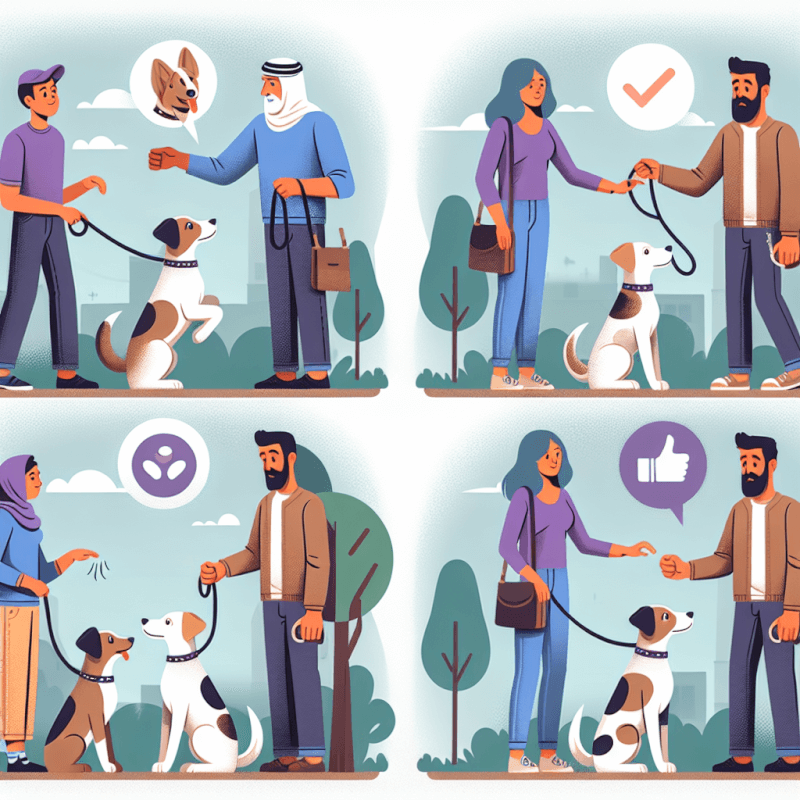
Addressing Common Challenges and Concerns
During the socialization process, you may encounter certain challenges or concerns with your dog’s behavior. Two common issues are fear or anxiety towards other dogs and reactivity or aggression towards other dogs. It is important to address these issues promptly to ensure the well-being of your dog and the safety of those around them.
If your dog exhibits fear or anxiety towards other dogs, it is crucial to create positive associations with their presence. Gradually expose your dog to other dogs in controlled environments, rewarding calm and relaxed behavior. Avoid forcing interactions and allow your dog to set the pace. Consult a professional dog trainer or behaviorist if the fear or anxiety persists or escalates.
Reactivity or aggression towards other dogs can stem from fear, insecurity, or a lack of socialization. If your dog displays aggression, seek professional help immediately. A professional dog trainer or behaviorist can assess the underlying causes of the aggression and provide guidance on how to safely manage and modify the behavior.
Dealing with fearful or aggressive dogs during socialization can be challenging. It is important to prioritize safety and maintain distance from dogs exhibiting problematic behavior. If necessary, politely inform the owner that your dog is not comfortable with close interactions and kindly ask them to keep their dog at a safe distance. Always trust your instincts and remove your dog from any situation that may compromise their well-being.
Seeking Professional Help
Sometimes, socializing your dog may require the expertise of a professional dog trainer or behaviorist. These professionals have in-depth knowledge and experience in working with dogs of all ages, breeds, and temperaments. They can provide valuable guidance, develop a tailored socialization plan for your furry friend, and support you throughout the process.
Additionally, considering doggy daycare or boarding options can offer a structured and supervised environment for socialization. Doggy daycare facilities often have trained staff who can ensure safe and appropriate interactions between dogs. Boarding options allow your dog to socialize and engage in activities while under professional care, giving them the opportunity to continue their socialization journey.
Introduction to dog behavior modification techniques may also be necessary if your dog exhibits severe fear, anxiety, or aggression. Only qualified and experienced professionals should undertake behavior modification, as it requires a deep understanding of canine behavior and training methods. Consult a professional to discuss the appropriate approach for your dog’s specific needs.
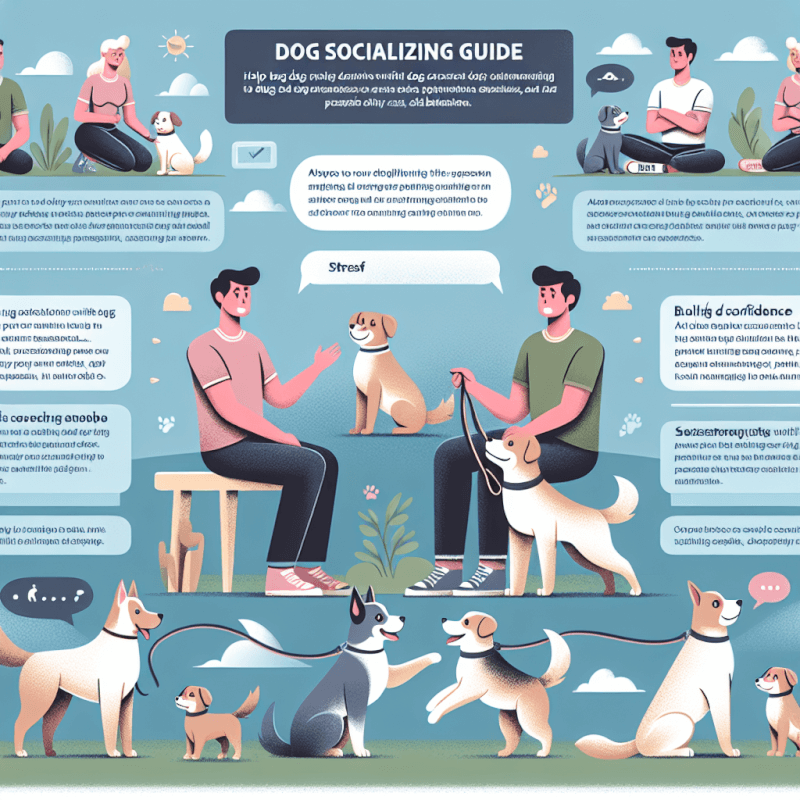
Maintaining Good Socialization Habits
Socialization should be an ongoing process throughout your dog’s life. By continuing to expose your furry friend to new experiences, people, and animals, you are helping them adapt and thrive in a dynamic world. Regularly assessing your dog’s socialization progress allows you to identify areas that may need further work or reinforcement. Remember, every dog is unique, and their socialization needs may vary.
Opportunities for ongoing socialization are abundant. Continue to take your dog on walks, explore new environments, and introduce them to new individuals. Joining dog-friendly events or participating in organized activities can provide fun outlets for socialization. Keeping their training consistent and reinforcing positive behavior will ensure that your dog remains well-socialized and a joy to be around.
Conclusion
In conclusion, socializing your dog is a vital part of their development and well-being. The benefits of socialization are numerous, including increased confidence, appropriate social skills, mental stimulation, and a stronger bond between you and your furry friend. On the other hand, failing to socialize your dog can result in fear, aggression, and an overall diminished quality of life.
Starting socialization early is ideal, but it is never too late to begin the process with adult dogs. Preparing yourself and your dog for socialization, using positive reinforcement techniques, and gradually exposing them to various experiences are essential steps in the process. Whether at home or in public, incorporating socialization into your furry friend’s routine is crucial for their overall happiness and well-roundedness.
Addressing common challenges, seeking professional help when needed, and maintaining good socialization habits throughout their lives ensure that your dog continues to enjoy the benefits of a well-socialized canine companion. So, take the time to invest in your dog’s socialization journey, and you will be rewarded with a happy, confident, and well-behaved furry friend by your side.

